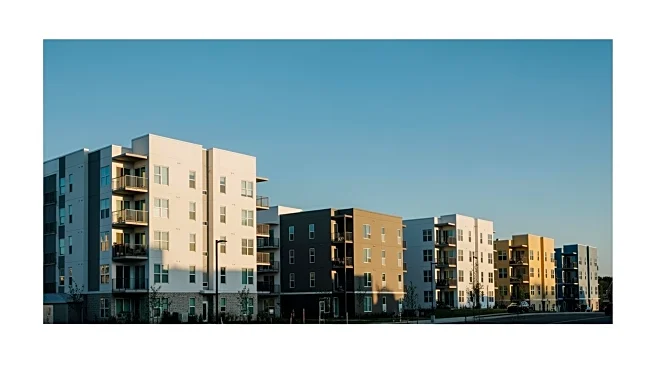What's Happening?
In Las Cruces, New Mexico, apartment rental prices have remained largely unchanged over the past year, according to data from rental marketplace Zumper. The median rent for apartments in Las Cruces was
$1,395 in September, showing a slight increase from August's $1,339 but remaining close to last year's median of $1,400. The data, which includes all bedroom sizes from studios to four-bedroom units, reflects active listings at any given point during the month. Notably, none of the 278 rental listings in Las Cruces are subsidized. One-bedroom apartments saw a significant increase, with median rents rising 19% from August to $963, while two-bedroom apartments experienced a 10% increase from last year, now listed at $1,290. Statewide, New Mexico's rental prices are slightly higher than in August, with one-bedroom rentals at $972 and two-bedroom rentals at $1,250.
Why It's Important?
The stability in Las Cruces' rental market is significant as it contrasts with broader national trends where rental prices have seen fluctuations. The unchanged rental prices in Las Cruces provide a degree of predictability for renters in the area, which can be crucial for budgeting and financial planning. However, the increase in one-bedroom rental prices could indicate a growing demand for smaller living spaces, possibly driven by economic factors or demographic shifts. The data also highlights the affordability of Las Cruces compared to national averages, with local rents significantly below the national median. This affordability could attract more residents to the area, potentially impacting local housing policies and economic development strategies.
What's Next?
As rental prices in Las Cruces remain stable, it will be important to monitor whether this trend continues, especially in the context of broader economic conditions. Potential factors that could influence future rental prices include changes in local employment rates, population growth, and housing supply. Additionally, the lack of subsidized housing options may prompt discussions among local policymakers about the need for affordable housing initiatives. Stakeholders such as real estate developers, local government, and community organizations may need to collaborate to address any emerging housing challenges and ensure that the rental market remains accessible to a diverse population.









